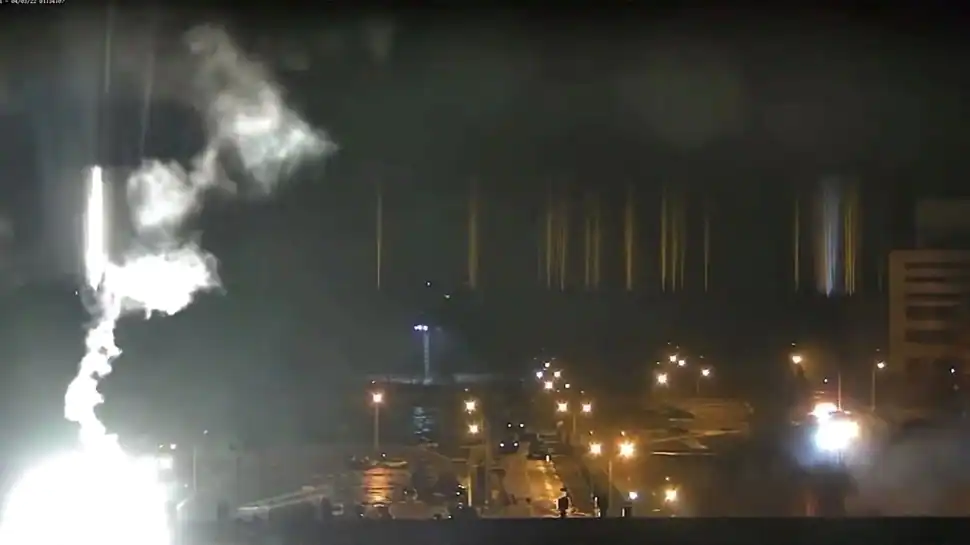Complex aero parts for the highly demanding aircraft supply chains are being manufactured in India by the Karnatak based Aequs, which has also focussed on growing as a fully equipped manufacturing ecosystem.
Global aerospace leaders like Boeing, Airbus, Dassault Aviation, Safran , Honeywell and Swedish SAAB are among the top customers of Aequs, which has manufacturing facilities in India, the US and France.
Mr Aravind Melligeri, Chairman & CEO, Aequs discusses in detail with Huma Siddiqui about the journey of his company in India along with its contributions towards building an “Atmanirbhar Bharat” in the defence sector.
Following are excerpts:
`Make in India’ has been a key driver of change across industries. How do you see this movement applied in the Indian Aerospace manufacturing industry? And to what extent has it changed how the country approaches aerospace manufacturing?
It is estimated the Indian Aerospace & Defence market will be worth $70 billion by 2030. Much of this growth stems from two aspects. The first is the 2020 Defence Acquisition Plan aligned to Atmanirbhar Bharatto strengthen defence production capabilities. The second is that India is slated to become the biggest market for commercial aircraft soon. Commercial aerospace imports will approach USD $1 trillion through 2039. Both will be the major drivers for A&D activity even as the Make in India Programme Spurs growth. Clearly, outsourcing aerospace production to India is an attractive proposition for global OEMs now.
Many Indian companies are now part of global programs for development of aerospace equipment in both the commercial and defence areas. For instance, Aequs, which set up India’s first precision engineering SEZ at Belagavi in North Karnatakaover a decade back, makes components for almost all major OEMs. “Every Airliner has some part made at Belagavi,” is a line we often use at Aequs.
Manufacturing ecosystems — can you elaborate on the impact these ecosystems have within aerospace?
Since inception, Aequs has aimed to build and sustain manufacturing ecosystems to provide one-stop solutions for all the needs of our customers. The Belagavi Aerospace Cluster (BAC) is the foremost among such clusters. Aequs is the only Indian aerospace manufacturer to deliver a seamless end-to-end manufacturing value stream for global OEMs. As India strives to become “Atmanirbhar,” such integrated ecosystems will be the driving force in this mission. The ecosystem model is a win-win for the OEM and the supplier alike as they bring down costs and offer consistent and uninterrupted operations. For instance, even at the peak of Covid-19 Aequs was able to service customers all because it operates within a cluster. The 250+ acre campus in Belagavi, Karnatakahouses co-located capabilities essential to serve any aerospace OEM. Most importantly,these clusters or ecosystems, also play a vital role in the Indian economy by increasing in-country value add. In other words they deliver lasting benefits to local economies and communities.
With your company’s experience of close to 15 years in aerospace manufacturing, what do you see as the defining trends for the next 15 years?
Beginning as the pioneers in setting up Aerospace Ecosystems, Aequs has been able to expand capabilities and footprint with operations in North America and France being added. Graduating from engineering services to manufacturing components, sub-assemblies and assemblies, todayIndian companies have been able to move up the value stream from Tier-2 and Tier-3 players to Tier-1 status. Not surprisingly, major OEMs are now actively looking to expand the supply chain in India. Driven by the Make in India initiative and powered by State Government support, we see a tremendous potential for growth.
Another area where the sector has potential is in the general MRO services, thanks to the fact that Indian airlines will account for the largest number of aircraft to be acquired by any one country by 2030. This will spur the demand for maintenance and overhaul services thanks to the increasing regional connectivity and increasing traffic.
The very fact that Aequs nurtures innovative talent goes a long way in improving the overall capabilities in the sector. We hire the highest number of aerospace manufacturing engineers in the private sector in the country today and are always on the lookout for more. We also run the Industrial Knowledge Centre (IKC), the only one of its kind in the country, where fresh engineering graduates are shaped into core aerospace manufacturing engineers after an intensive on-job training.
What according to you are our country’s competitive advantages that draw global OEMs for parts manufacturing to us?
It can be said that its cost competitiveness is the key factor that is leading global OEMs to Indian shores. Low labour costs, easier resource availability, a huge domestic market and a strong defense and space programme add to India’s attractiveness. At the same time as companies start to go up the value chain and offer integrated solutions including R&D, ER&D and manufacturing, it becomes more attractive.
How does Aequs plan on upscaling its aerospace manufacturing capacity this year? Are any new technologies in the pipeline? What are some of the biggest growth drivers for the company?
Aequs will continue to add capabilities and capacities in A&D manufacturing in the coming years commensurate with global demand and invest in the Belagavi Aerospace Cluster accordingly.
Vertical integration will be a major focus area. We will be adding capabilities for machined forgings to make critical engine components for programmes like the Leap engine. Leap will be a game changer as the global aerospace sector moves towards becoming net zero by 2050. We also anticipate good traction in the single aisle market with the return of regional travel post Covid-19. For instance, Airbus has already said it will ramp up production of its bestselling A320 family to 75 aircraft per month by 2025. Clearly, demand for short haul aircraft is bound to shoot up.














